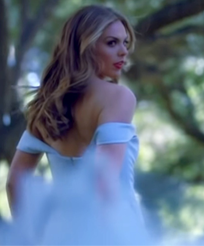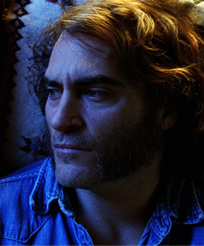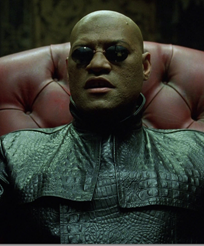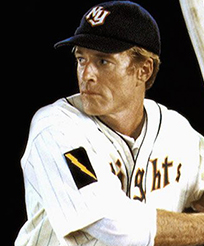On Monday, the great Bob Dylan reluctantly emerged into the spotlight with the release of his
Nobel lecture for his prize for literature, just before the deadline on Friday. (According to the
Swedish academy, in order to claim the money associated with the prize—roughly $900,000—the recipient
must deliver a lecture within six months of the award ceremony.)
If you recall, the Nobel committee prompted quite the high-minded debate when they first announced the winner last fall: Do lyrics count as literature? (I think yes.) Does rewarding Bob Dylan, a well-known entity, make the best use of an award that can shed light on a practitioner of an increasingly underappreciated art? (I think not.) Also, was Triplicate really necessary? (Totally unrelated, but jury’s still out.)
Dylan himself, of course, only contributed to the controversy, when he failed to attend the award ceremony in December and refused to actually accept the award until March. It was unclear, for a while there, whether he felt he didn’t deserve the honor, or whether he simply didn’t care. I imagine it was probably a bit of both.
This ambivalence (or whatever you want to call it) is reflected in the lecture—a deeply considered treatise on the folk song, Moby-Dick and the overall point of literature, which, in true Dylan fashion, amounts to both a genuine acceptance and refutation of the award for which it was written.
It begins with an ode to Buddy Holly, who, at a concert, Dylan writes, “looked me right straight dead in the eye” and “transmitted something. Something I didn’t know what.” A day or two later, Holly’s plane goes down. Dylan is handed a Leadbelly record with the song “Cottonfields” on it and, just like that, the seeds of what would become his singular brand of folk were born.
“By listening to all the early folk artists and singing the songs yourself,” Dylan continues in the lecture, “you pick up the vernacular. You internalize it.”
Folk, to Dylan, is a sort of creole language pulled together from a wide range of voices, styles and influences. His creates a strange universe wherein all the John the Revelators and lusty Lord Donalds and Tommies and Johnnies and Froggies (these are Dylan’s words, not mine) manage to coexist, of a piece with one another, despite their differences.
As he explains later in the lecture, in what can only be described as Bob Dylan Does Cliff Notes, the way these disparate strands are weaved into one body of work is equally emblematic of Moby-Dick: “Everything is mixed in. All the myths: the Judeo Christian bible, Hindu myths, British legends, Saint George, Perseus, Hercules–they’re all whalers. Greek mythology, the gory business of cutting up a whale...history of the whale, phrenology, classical philosophy, pseudo-scientific theories, justification for discrimination—everything thrown in and none of it hardly rational.”
Dylan goes on to somewhat desultorily examine two other influential books from his grammar school days—All Quiet on the Western Front and The Odyssey—before reaching this conclusion: “If a song moves you, that’s all that’s important. I don’t have to know what a song means. I’ve written all kinds of things into my songs. And I’m not going to worry about it—what it all means. When Melville put all his old testament, biblical references, scientific theories, Protestant doctrines, and all that knowledge of the sea and sailing ships and whales into one story, I don’t think he would have worried about it either—what it all means.”
There is some truth to that notion, certainly. Novelists, on the whole, are not nearly as worried about “what it all means” as their critics. Writers’ influences and referents are implicit to the story or song and vice-versa, because they’re all coming from the same place; they all serve the specific world that a specific author (/songwriter/poet) is building. One of the fundamental joys of literature—whether it be through lyric or prose—lies in this not-knowningness, the vacuous space a reader or listener imbues with meaning or understanding that’s personal to them.
And yet, songs can move you regardless of their lyrics, because they have music, a melody, an ineffable power to transmit something human, as Holly did to Dylan that fateful night in 1959. For prose to move you, it requires something more—a sense, big or small, subjective or objective, painstakingly clear or frustratingly abstract, of “what it all means.” Othwerwise, it’s just noise.
Dylan seems to understand as much. He ends his lecture where the debate began, suggesting that while the experience of reading lyrics alone does not match the experience of reading great literature, the experience of listening to songs can.
“Songs are unlike literature. They’re meant to be sung, not read...And I hope some of you get the chance to listen to these lyrics the way they were intended to be heard: in concert or on record or however people are listening to songs these days. I return once again to Homer, who says, ‘Sing in me, oh Muse, and through me tell the story.’”
If you recall, the Nobel committee prompted quite the high-minded debate when they first announced the winner last fall: Do lyrics count as literature? (I think yes.) Does rewarding Bob Dylan, a well-known entity, make the best use of an award that can shed light on a practitioner of an increasingly underappreciated art? (I think not.) Also, was Triplicate really necessary? (Totally unrelated, but jury’s still out.)
Dylan himself, of course, only contributed to the controversy, when he failed to attend the award ceremony in December and refused to actually accept the award until March. It was unclear, for a while there, whether he felt he didn’t deserve the honor, or whether he simply didn’t care. I imagine it was probably a bit of both.
This ambivalence (or whatever you want to call it) is reflected in the lecture—a deeply considered treatise on the folk song, Moby-Dick and the overall point of literature, which, in true Dylan fashion, amounts to both a genuine acceptance and refutation of the award for which it was written.
It begins with an ode to Buddy Holly, who, at a concert, Dylan writes, “looked me right straight dead in the eye” and “transmitted something. Something I didn’t know what.” A day or two later, Holly’s plane goes down. Dylan is handed a Leadbelly record with the song “Cottonfields” on it and, just like that, the seeds of what would become his singular brand of folk were born.
“By listening to all the early folk artists and singing the songs yourself,” Dylan continues in the lecture, “you pick up the vernacular. You internalize it.”
Folk, to Dylan, is a sort of creole language pulled together from a wide range of voices, styles and influences. His creates a strange universe wherein all the John the Revelators and lusty Lord Donalds and Tommies and Johnnies and Froggies (these are Dylan’s words, not mine) manage to coexist, of a piece with one another, despite their differences.
As he explains later in the lecture, in what can only be described as Bob Dylan Does Cliff Notes, the way these disparate strands are weaved into one body of work is equally emblematic of Moby-Dick: “Everything is mixed in. All the myths: the Judeo Christian bible, Hindu myths, British legends, Saint George, Perseus, Hercules–they’re all whalers. Greek mythology, the gory business of cutting up a whale...history of the whale, phrenology, classical philosophy, pseudo-scientific theories, justification for discrimination—everything thrown in and none of it hardly rational.”
Dylan goes on to somewhat desultorily examine two other influential books from his grammar school days—All Quiet on the Western Front and The Odyssey—before reaching this conclusion: “If a song moves you, that’s all that’s important. I don’t have to know what a song means. I’ve written all kinds of things into my songs. And I’m not going to worry about it—what it all means. When Melville put all his old testament, biblical references, scientific theories, Protestant doctrines, and all that knowledge of the sea and sailing ships and whales into one story, I don’t think he would have worried about it either—what it all means.”
There is some truth to that notion, certainly. Novelists, on the whole, are not nearly as worried about “what it all means” as their critics. Writers’ influences and referents are implicit to the story or song and vice-versa, because they’re all coming from the same place; they all serve the specific world that a specific author (/songwriter/poet) is building. One of the fundamental joys of literature—whether it be through lyric or prose—lies in this not-knowningness, the vacuous space a reader or listener imbues with meaning or understanding that’s personal to them.
And yet, songs can move you regardless of their lyrics, because they have music, a melody, an ineffable power to transmit something human, as Holly did to Dylan that fateful night in 1959. For prose to move you, it requires something more—a sense, big or small, subjective or objective, painstakingly clear or frustratingly abstract, of “what it all means.” Othwerwise, it’s just noise.
Dylan seems to understand as much. He ends his lecture where the debate began, suggesting that while the experience of reading lyrics alone does not match the experience of reading great literature, the experience of listening to songs can.
“Songs are unlike literature. They’re meant to be sung, not read...And I hope some of you get the chance to listen to these lyrics the way they were intended to be heard: in concert or on record or however people are listening to songs these days. I return once again to Homer, who says, ‘Sing in me, oh Muse, and through me tell the story.’”













